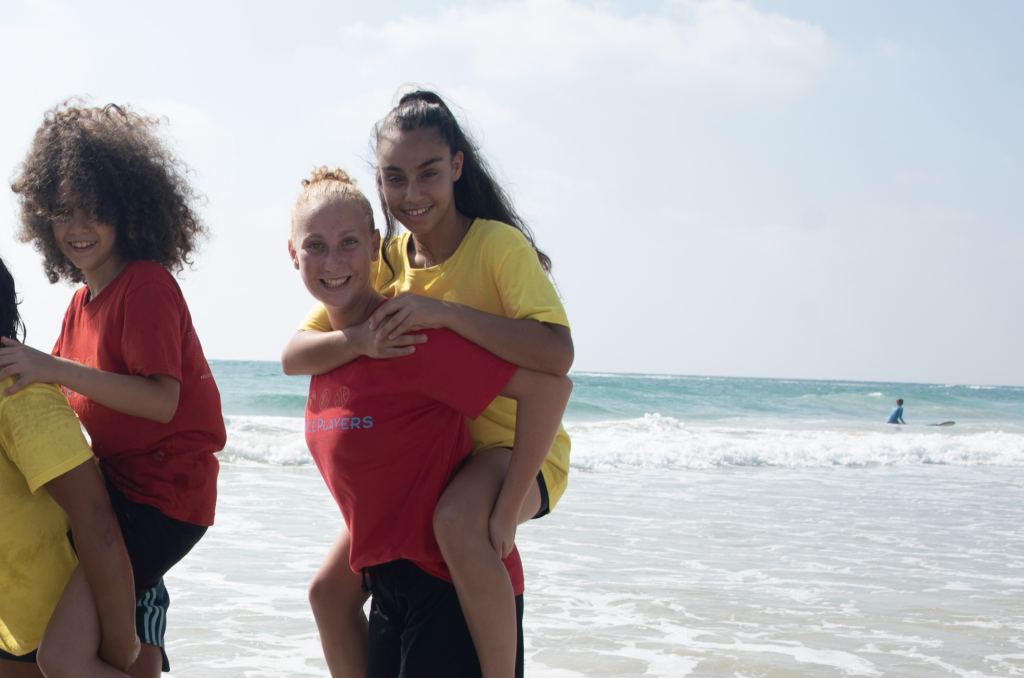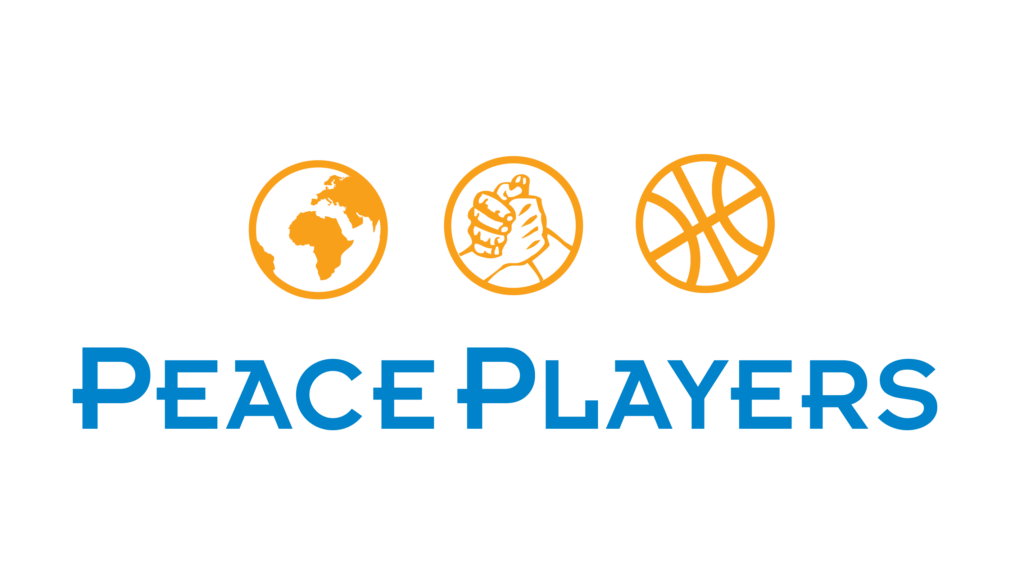Virtual Friendship Games Keep Sireen and Keren Feeling Connected Throughout Lockdown Isolation
August 2, 2021
SHARE
Keren and Sireen (both 16), live five minutes away from each other, but on the opposite sides of the Palestinian-Israeli divide in Jerusalem. In the years that they have been PeacePlayers teammates and friends, that divide has become a bit easier to cross.But in 2020, COVID-19 put up a new barrier, not just between Keren and Sireen, but between people and their families, friends, and communities. As members of the competitive Palestinian-Israeli All-Star teams, which compete in the Israel Basketball Association’s youth leagues, Sireen and Keren went from meeting for practice nearly every day to nothing at all. “In the beginning of the time of COVID, we were cut off from everything. I didn’t have [contact] with school, or friends -I didn’t meet up with anyone,” shared Sireen.
Although our youth were cut off from much of their immediate circles, COVID did offer an unexpected opportunity -to connect our youth from around the world and spend the year building our global youth movement for peace and equity. But before youth can work together on complex social issues, first they have to be friends and have fun together. This is where the Virtual Friendship Games (founded by Ed and Penelope Peskowitz) came in. All year, through monthly Cultural Twinnings, young people in South Africa, Northern Ireland, the Middle East, Cyprus and the United States got together on Zoom to build friendships, play games and learn about each other’s cultures.
“We added each other on Instagram and Snapchat, and everyone started sending their username. So, I met lots and lots of people. And we started talking more and getting to know each other more. And it did make me feel good during COVID, because I did need things like that."

For Keren, the global virtual encounters helped Keren feel like being a PeacePlayers went well beyond being part of her own team:
“All the Zoom meetings just made me understand how I’m part of something that’s bigger than me. Like, it’s much bigger than I thought it was. Even at a time like this,we continued -even though we can’t fly to meet people from other countries, but, we kept on meeting over Zoom, and we kept doing all sorts of activities. A lot of [other] activities that I took part in, because of COVID, either stopped operating or, didn’t really know how to keep working with us, so we just stopped, but in PeacePlayers, they kept going all the time we continued to meet, and strengthen our relationships -between countries, but also within our team -among ourselves.”
Along with being part of something greater comes gaining the understanding and empathy for what someone else is going through. For Sireen, Keren and many PeacePlayers around the globe, this meant taking comfort in knowing they were not alone in the challenges they faced. “Without the sessions with the other sites, I would only see the Covid situation here, so it helped me see other people, from outside the countries, how they live, what their circumstances are like, what’s going on there, or is it just like this here? It also helped me understand that some things are different, it’s not the same. But at the same time, it’s hard for everyone. And also that I should look at the positive things, because it’s not just hard for me. And it’s not just hard for Keren. It gave me a sort of motivation to understand.”
For Keren, the Virtual Friendship Games even helped her put her local conflict, the intractable Palestinian-Israeli conflict, in context. “The encounters… made me understand that conflicts aren’t just things that happen in Israel, to understand that conflict is something that happens in life and you need to know how to deal with it, and put it in proportion, to understand that these are things that happen, and you have to deal with them in positive ways.”





